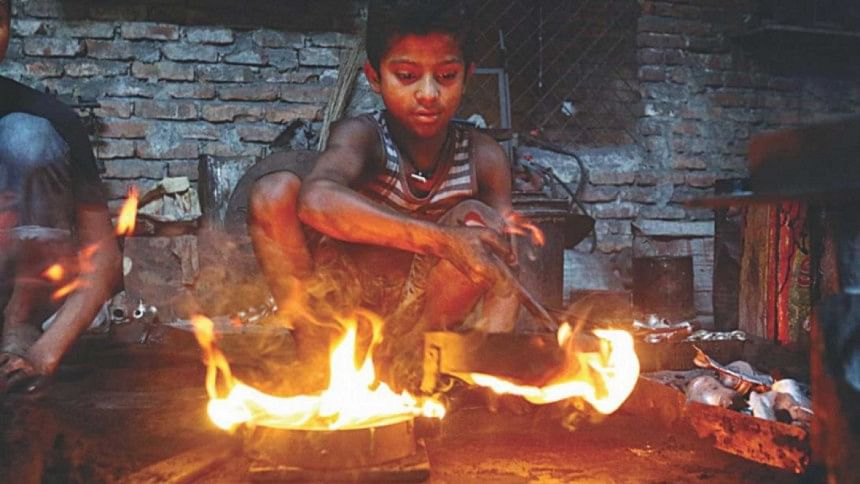Children belong in schools, not factories

As we build our way to becoming a middle-income country, it is saddening that our children's education is so vulnerable to a pandemic. While, in most countries, schools were often the last to be shuttered in the event of a lockdown during the last two years, quite the opposite has been observed in Bangladesh. Though many children were able to somewhat keep up with online classes and other remote learning materials, most have not been as fortunate. For example, in Dhaka, according to a new study by Educo Bangladesh, 57 percent of child labourers attended schools before the pandemic hit—but 89 percent of them dropped out afterwards.
While the study had a relatively small sample size, its findings are still quite illustrative and show how the pandemic has exacerbated the child labour problem. The global situation has been equally disconcerting. In July 2021, the International Labour Organization and UNICEF reported the first increase in global child labour over the last two decades, with 160 million children engaging in labour. Of them, a staggering 79 million were found to be engaged in categorically hazardous work. The Educo study brings further insight into this reality, unveiling that children are engaged in labour chiefly because of pandemic-induced financial hardships and school closures.
Clearly, at the root of this issue is the fact that children in low-income families had to forgo education to support their families financially, as many had lost their jobs or other sources of income. It is proof, yet again, of the failure of government policies to reach out to the most deserving beneficiaries of its welfare schemes. We wonder why the government couldn't provide these families with necessary funds. Even so, perhaps this high rate of dropouts could have been avoided had schools not remained shut for so long.
If their education is ensured and if skills development trainings are provided to them, these children from low-income families can actually grow up to be self-reliant, escape generational poverty and help their families in the long run. We urge the government to take proper steps to not only get these children back to schools, but also to make sure they never have to go back to working unless they are of age. It is unacceptable that while physical infrastructures worthy of a fast-rising nation are being built, a large number of children are falling through the cracks, never to reach their potential. We must direct children towards education for that, and away from labour for their survival.

 For all latest news, follow The Daily Star's Google News channel.
For all latest news, follow The Daily Star's Google News channel. 



Comments